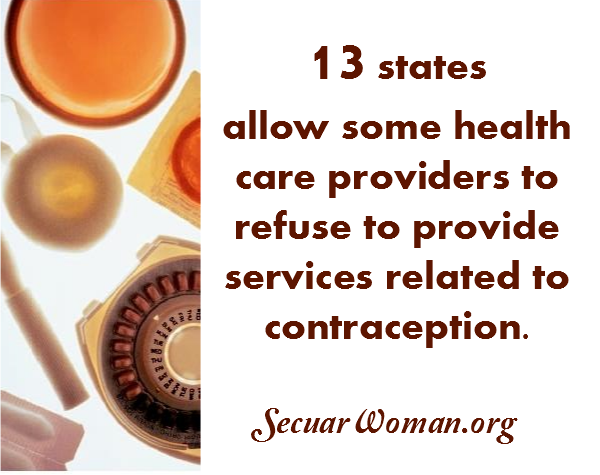Recently there has been a series of images circulating the internet depicting a number of women holding signs explaining why they do not utilize birth control. While one or two of the reasons given can be seen as rational (e.g. they want to be “organic” and hormone free), there are many of the statements that are not only highly illogical, but also downright offensive. Among those that fall into the latter category are statements like “because my body is a gift to my future husband and that gift includes motherhood” and “because [birth control] allows men to use women with no consequences.” There are nearly two dozen more images with proclamations like the aforementioned including “because I can control myself,” “because I am responsible and make mindful decisions accepting the consequences for my actions,” or better yet “because children are not an inconvenience, they’re a gift”. What these women seem to be forgetting, what a lot of people on the anti-birth control band wagon have forgotten, is that what is good for them is not good for everyone else, and how you act is not how everyone else acts, and it really is just that simple.
A favorite of mine that was posted is “because I don’t have to give up my womanhood to be a feminist.” By the time I got to this statement, I was already scrambling to pick my jaw up off the ground, but when I finished reading it, I was dumbfounded. I’m not exactly grasping what this woman seems to know as truth. First, since when does having children mean one cannot be a feminist, and second, since when does feminism require you to not have children and to use birth control? The answer to these questions is since never. Never have I heard the feminists I know say or imply that being on birth control is a requirement to be a feminist. The statement she made is just further proof to me that there are still an incredible amount of women who have been mislead about feminism, albeit what “feminism” means to an individual tends to be quite subjective.
Also referenced in a few of the photos in the series, although not cited or peer reviewed, were some interesting science and medical facts. Apparently, at least according to one of the women pictured, women get cervical cancer from birth control alone, and not from things such Human papillomavirus (HPV), which using protection and getting vaccinated can prevent. There is no link between the use of general birth control and developing cervical cancer. The link here is from an increased risk for developing cervical cancer due to long term use of birth control pills in women who already have HPV and leave it unchecked and the symptoms untreated. While I can’t address every single absurd claim of phony science in the photos, I feel like it should also be noted that the same sign also mentioned a link between birth control and breast cancer. This link is also an increased risk, but this was back in the 1970s primarily, when birth control had high amounts of estrogen, not so much with the low dose pills these days. But if hormones are what are deterring these women from birth control there are alternative no-hormone options.
A running theme amongst the images that I found to be exceptionally flabbergasting is the way the word “womanhood” is used, for example “because womanhood and fertility are a beautiful gift and I want a love that is self-giving and life-giving.” What saddens me is how many of the women pictured define womanhood not by the fact that they have vaginas, or feel themselves to be women, but are dictated by ancient value systems of whether or not they reproduce, as though having children is a measure of merit to how worthy one is of their womanhood. Womanhood does not equal motherhood. The two are not synonymous, will never be synonymous, and have never been synonymous. People who say or believe things like that are essentially reduce the countless number of women throughout history who have been unable to have children or have chosen not to have children to what? What exactly is it that these women are implying? Is a woman who does not have any children but is accomplished in other aspects less of a woman because she has not bore children? Many of these same women in the photo series also mentioned how they don’t use birth control because they only plan to have sex for the purposes of producing life (e.g. the one who said that her body essentially belongs to her future husband, and should be fertile and ready to reproduce).
Throw in the reference to Roman Catholic family planning and I can hear the church bells a-ringing.

